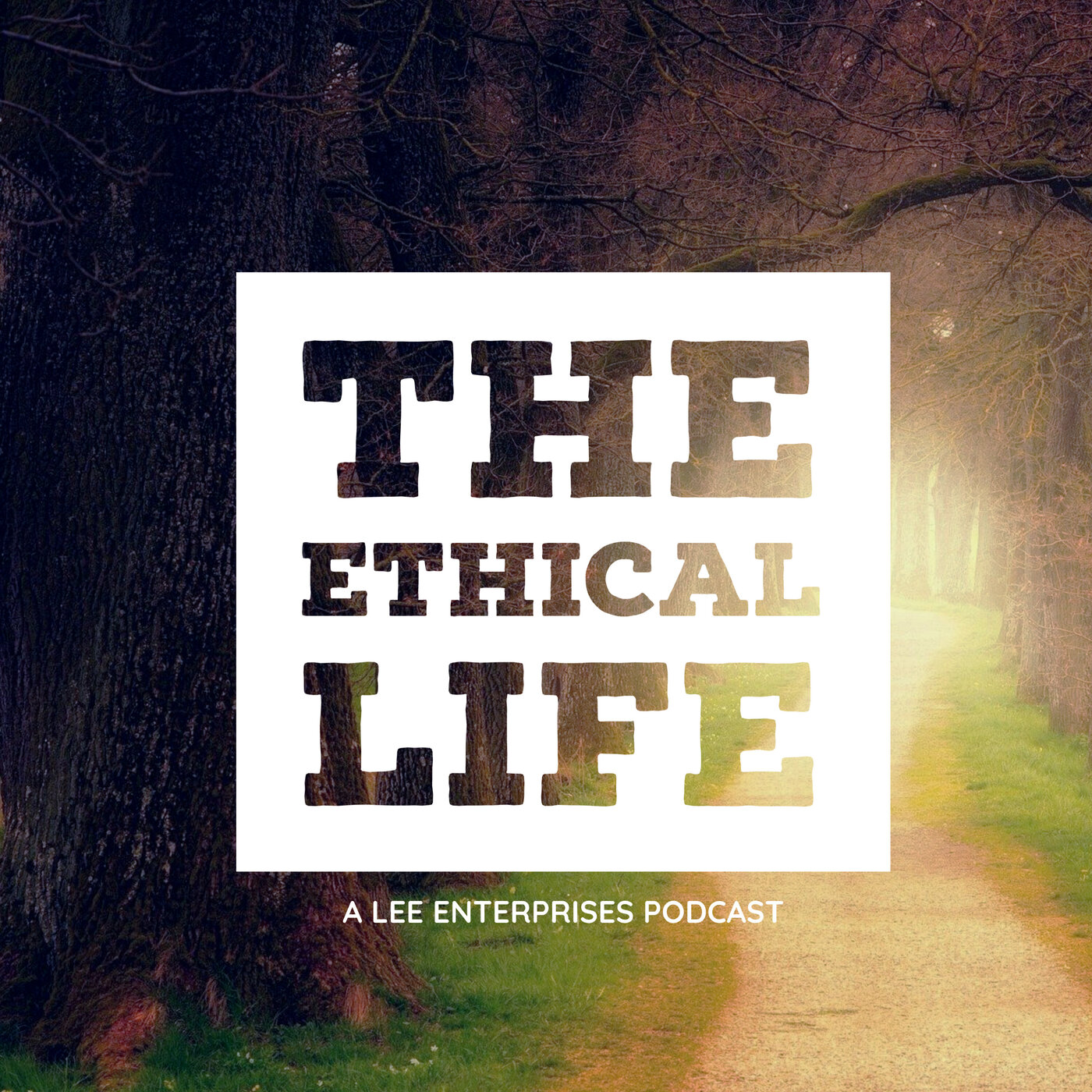
Scott Rada is a digital strategist with Lee Enterprises, and Richard Kyte is the director of the D.B. Reinhart Institute for Ethics in Leadership at Viterbo University in La Crosse, Wisconsin. Kyte is also the author of "Finding Your Third Place: Building Happier Communities (and Making Great Friends Along the Way)."
Follow the show on Apple Podcasts or on Spotify.
Social links
X.comFollow the podcast
RSS Feed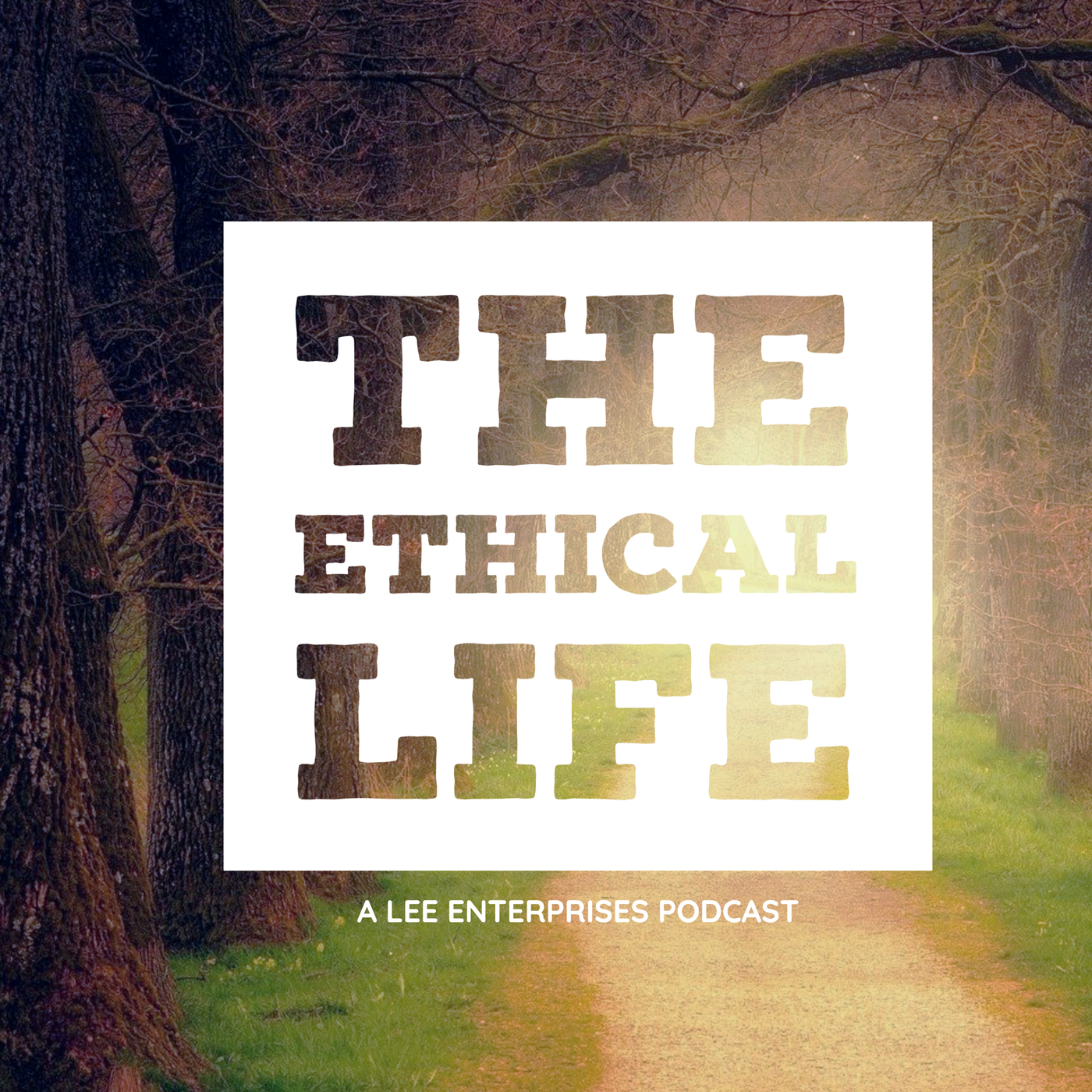
Episode 233: Artificial intelligence is often sold as a gift — fewer tedious tasks, faster workflows, more time to focus on what really matters. From summarizing documents to organizing files, today’s tools promise to clear away the friction of daily work. And in many cases, they deliver. Few people entered their profession dreaming of merging PDFs or transcribing blurry documents.
But what happens when the mundane disappears?
In this episode, hosts Richard Kyte and Scott Rada explore a quieter concern raised in a recent Wall Street Journal column: the human brain isn’t built for nonstop high-level engagement. Those repetitive, low-intensity tasks many of us rush to eliminate may actually serve an important purpose. They create mental “lull time” — space for reflection, recovery and the kind of wandering thought that often leads to insight.
Kyte shares a personal example of using AI to speed up a long-term archival project. The tool dramatically reduced the time required, yet the work became more mentally intense and surprisingly exhausting. Instead of alternating between light and focused effort, he found himself operating at a sustained cognitive peak. The result? Greater output — and greater strain.
The conversation expands beyond individual experience. Drawing on examples from law enforcement, workplace analytics and even wearable technology that tracks stress, the hosts consider whether modern culture increasingly equates optimization with virtue. When every minute is measured and every task streamlined, do we unintentionally crowd out the mental recovery that judgment and imagination require?
They also examine broader implications. If automation concentrates production and wealth, what happens to our sense of usefulness and contribution? Work is not only about income, but it also shapes identity, purpose and belonging. How might those foundations shift in an age of accelerating technological change?
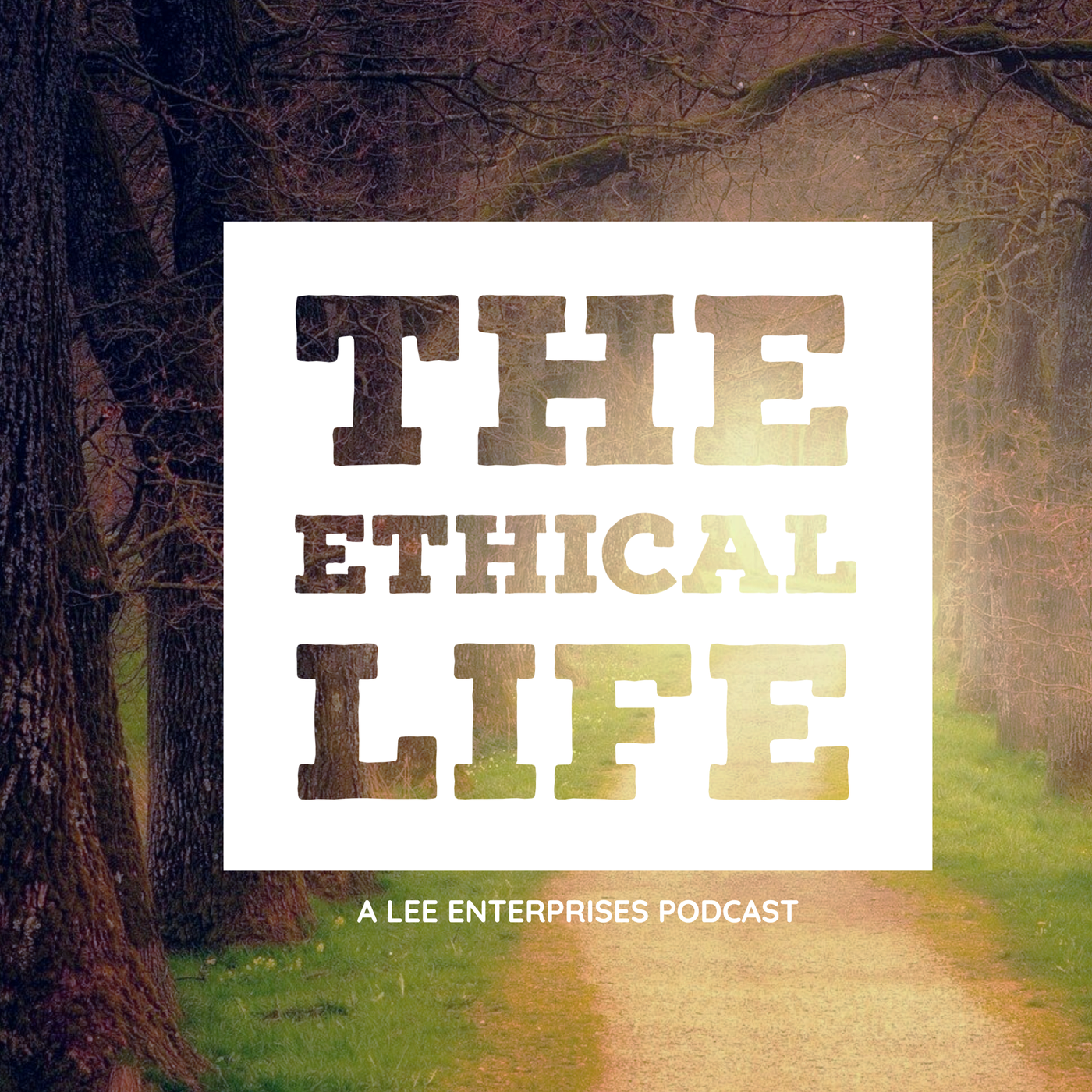
Episode 232: Citizenship is a word we hear constantly, especially in political debates, yet it remains surprisingly hard to pin down. Is it simply a legal status, confirmed by documents and protected by law? Or is it something deeper — a set of habits, responsibilities and shared expectations that shape how people live together?
In this episode of The Ethical Life, hosts Richard Kyte and Scott Rada take on that question at a moment when the idea of citizenship feels especially strained. Immigration debates, proposed changes to the U.S. citizenship test and growing frustration with democratic institutions have turned citizenship into a flashpoint, often discussed in stark, binary terms: citizen or not, insider or outsider.
But Kyte argues that this framing misses something essential.
Drawing on ethics, history and lived experience, the conversation explores citizenship as both a legal designation and a moral practice. While legal status defines standing within a political system, democratic life, Kyte says, only survives when people actively participate in it — by staying informed, voting, attending local meetings, understanding how institutions work and accepting the slow, imperfect work of self-government.
The discussion ranges widely, touching on the decline of civics education, disagreements over how American history should be taught and the question of what citizens — both naturalized and native-born — should reasonably be expected to know. Rada raises the uncomfortable reality that many people born in the United States would struggle to pass the same civics test required of new citizens, prompting a deeper examination of what society values and what it neglects to teach.
The episode also looks ahead, with the country approaching its 250th anniversary, and asks how Americans should think about national identity, pride and criticism at the same time. Kyte challenges the idea that acknowledging historical failures requires rejecting the broader democratic project, framing the American experiment instead as an ongoing effort marked by progress, setbacks and responsibility.
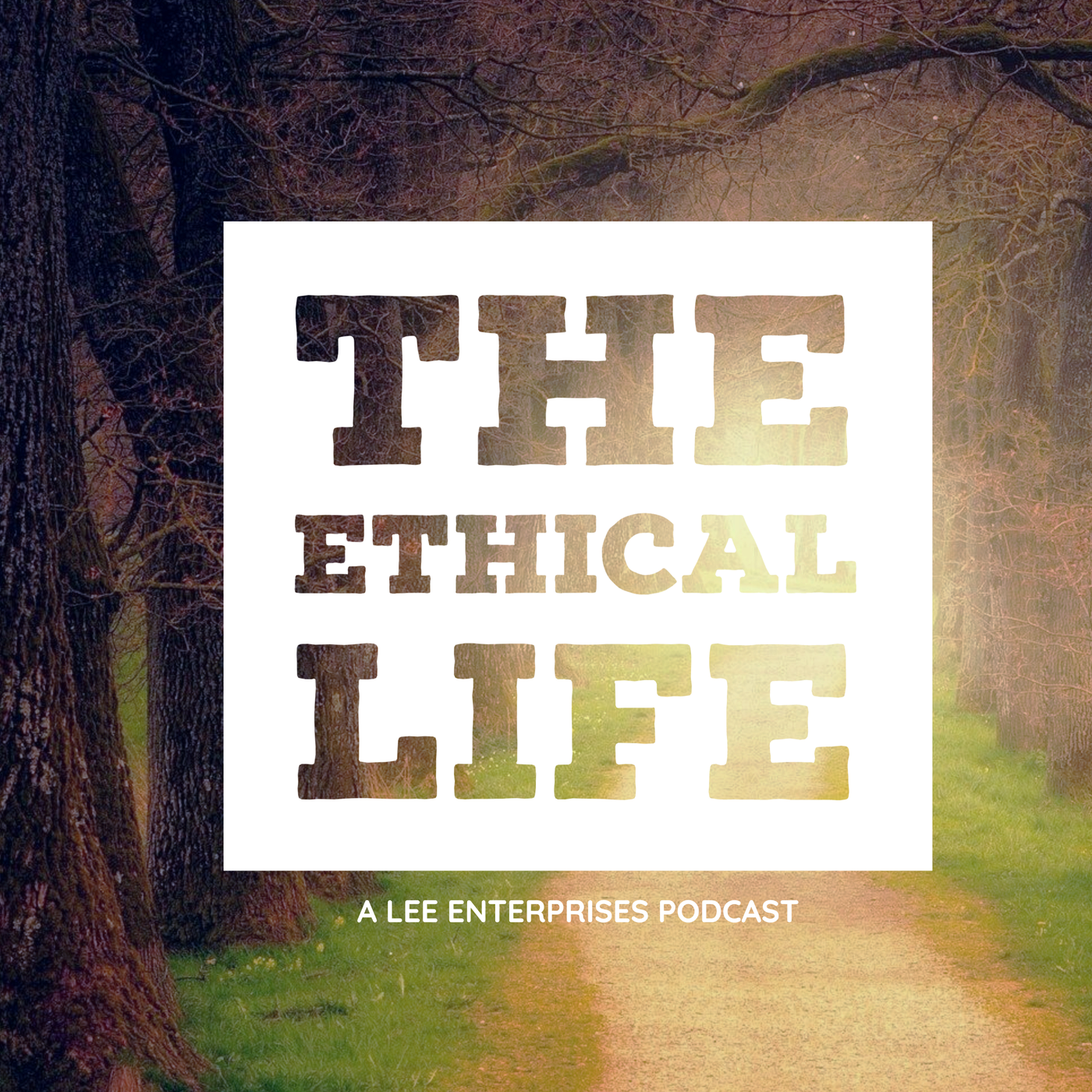
Episode 231: Hosts Richard Kyte and Scott Rada explore how living inside algorithmic media is reshaping not just what we see, but how we understand the world — and each another.
The conversation begins with a simple but unsettling observation: moments of national trauma linger emotionally long after the events themselves, leaving many people feeling brittle, exhausted and constantly on edge. At the same time, credible data suggests that in many measurable ways — from declines in violent crime and overdoses to medical breakthroughs and rising wages — life in the United States has improved.
So why does it feel so hard to even hear that kind of information?
The hosts dig into the ethical implications of media systems designed to maximize engagement rather than understanding. They unpack how personalized feeds, whether on social platforms, news sites or entertainment services, reward fear, outrage and conflict, while quieter forms of progress struggle to surface. Over time, this creates a distorted sense of reality, one in which crisis feels constant and improvement feels suspect.
The discussion moves beyond social media to consider how algorithms shape everything from the news we read to the music we discover. Kyte reflects on what’s been lost as we’ve traded broad exposure for hyper-personalization, while Rada shares how “big if true” rumors spread faster than verification in an environment with few editorial checks. Together, they ask what happens to moral judgment, empathy and civic responsibility when attention is continually pulled toward the most extreme claims.
Importantly, the episode resists easy answers. The hosts acknowledge that real suffering persists and that serious problems demand attention. But they argue that ignoring genuine progress carries its own ethical cost, especially when despair becomes a moral default that discourages engagement and collective action.

Episode 230: In an era when every major news event seems to demand an immediate opinion, “The Ethical Life” podcast asks a harder question: When is speaking up a moral obligation, and when is silence the wiser choice?
In this episode, hosts Richard Kyte and Scott Rada explore the growing pressure to publicly comment on political controversies, social justice issues and breaking news — especially on social media, where silence is often treated as consent. The conversation is rooted in recent national debates sparked by aggressive immigration enforcement actions in the Twin Cities and the intense online reactions that followed.
The hosts examine why the urge to speak can feel so urgent, even when facts are incomplete or emotions are raw. They question whether constant public commentary actually persuades anyone, or whether it more often deepens division by rewarding outrage and certainty over patience and understanding.
The discussion draws a careful distinction between private and public speech, noting that social media exists in a murky space between the two. Kyte argues that while working through ideas aloud can be valuable in trusted relationships, public platforms are often poorly suited for nuance, uncertainty or moral reflection.
The hosts also revisit lessons from the civil rights movement, including the example of Martin Luther King Jr., not just as a model of moral courage but of discipline, preparation and restraint. They contrast that approach with today’s expectation that everyone should weigh in on every controversy, often without time to listen or reflect.
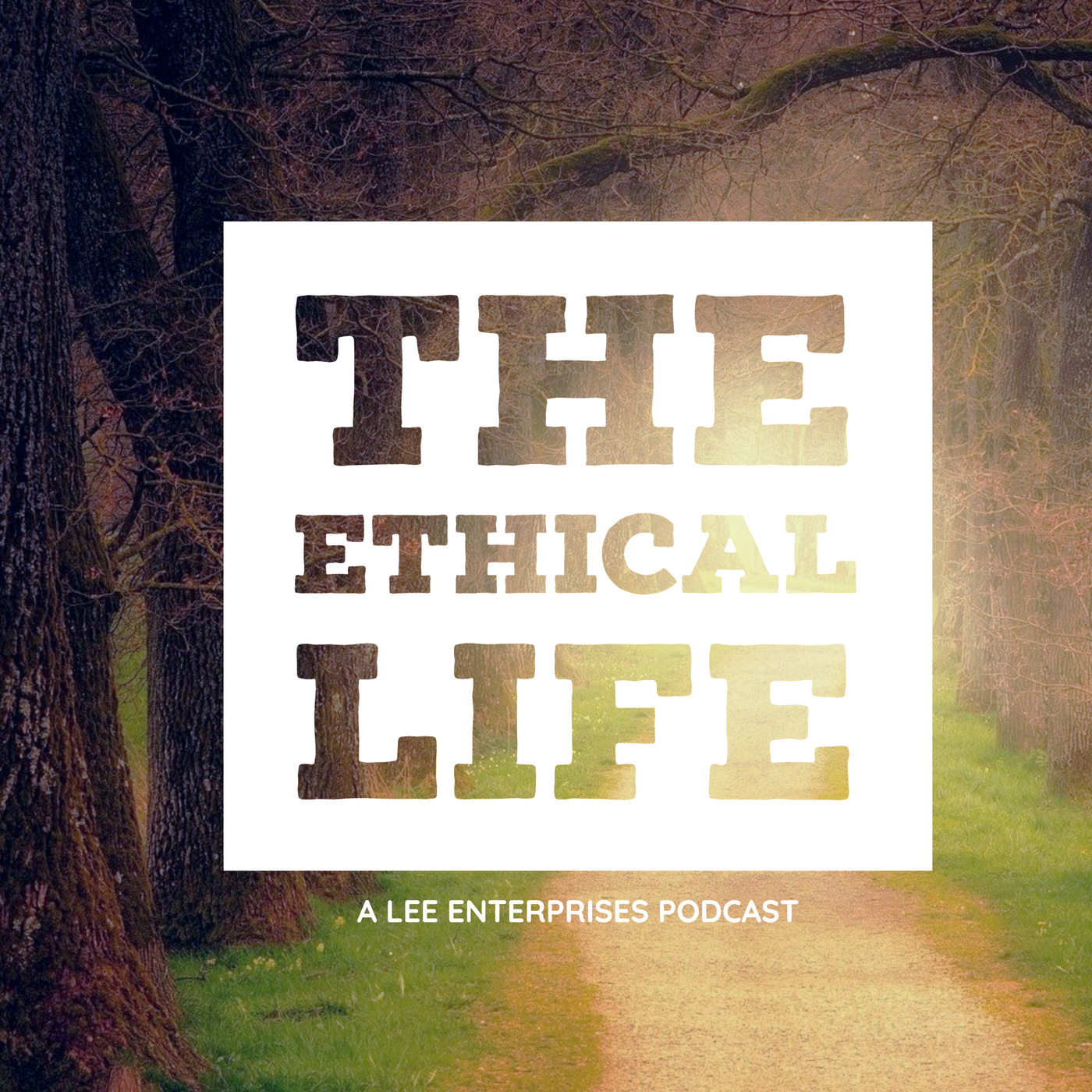
Episode 229: Hosts Richard Kyte and Scott Rada are off this week, so we looked back through our show archives and are sharing four of our favorite ethical dilemmas from the past several months.
Topics include whether it’s OK to correct the actions of other people’s children, what advice you’d give your friend who won a lottery jackpot, the ethics around quick conversations and the proper etiquette when staying at an Airbnb.
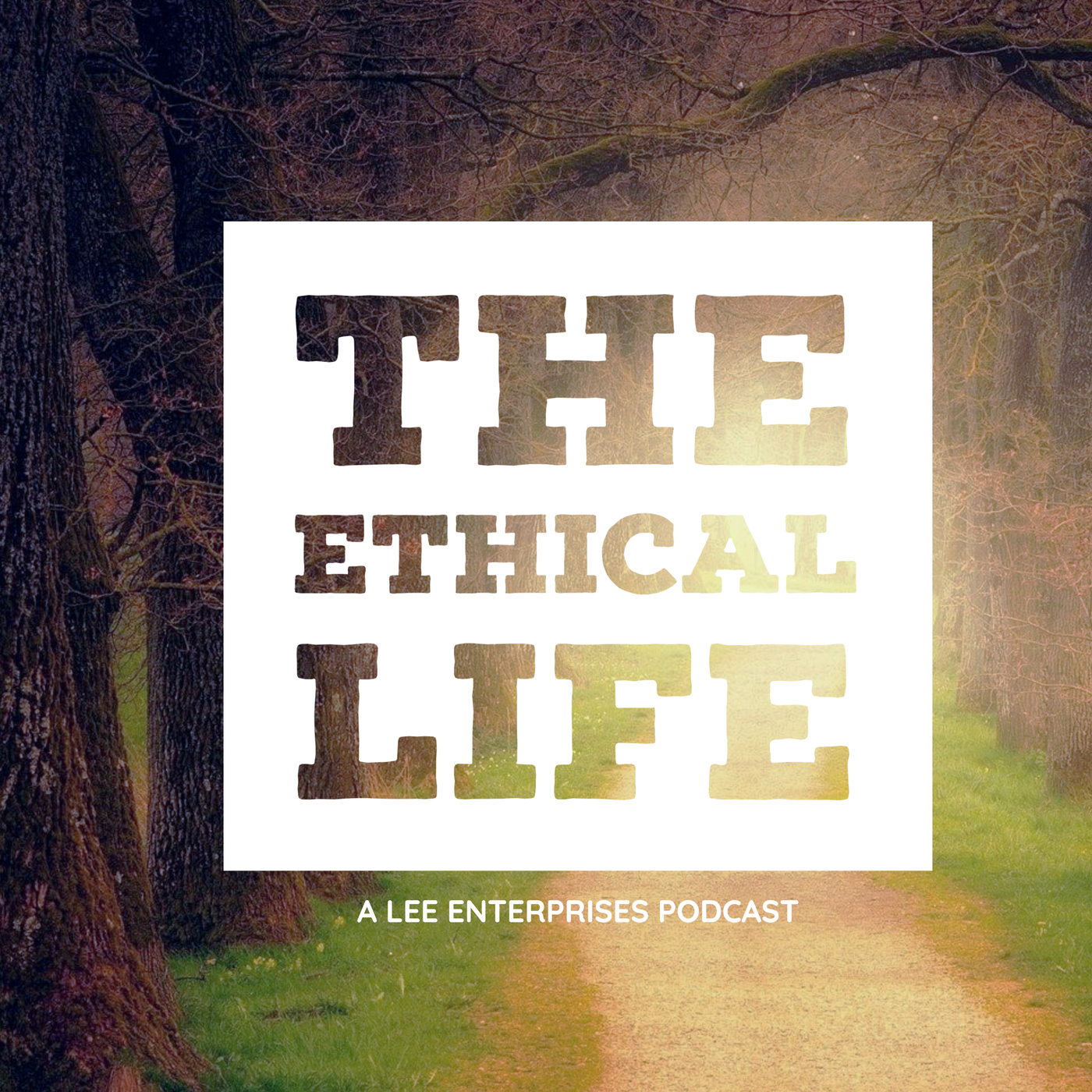
Episode 228: In early January, advice is everywhere. Friends offer encouragement. Social media fills with tidy aphorisms. But beneath the flood of guidance sits an uncomfortable question we rarely confront: How much of what happens to us is actually within our control?
Hosts Richard Kyte and Scott Rada take on that question by examining the role chance plays in shaping lives — and how ignoring it can distort the way people judge themselves and others.
The conversation begins with a familiar moment: times of transition. New jobs, moves, health scares and relationship changes often leave people searching for direction. Those moments, Rada notes, are when advice feels most powerful — and most dangerous. Kyte argues that advice often sounds wiser in hindsight than it truly is, especially when people mistake favorable outcomes for proof that certain paths were inevitable.
Throughout the episode, the hosts explore why stories of achievement tend to emphasize effort and intention while quietly overlooking randomness, timing, and circumstance. That omission, they suggest, fuels harsh self-judgment and unfair assumptions about others. When things go well, people feel deserving. When they do not, blame comes easily.
Kyte draws on philosophy, behavioral research and personal experience to explain how probability, preparation and habit matter — but never operate alone. A discussion of health decisions, including lifestyle changes prompted by medical warning signs, illustrates how agency and uncertainty coexist rather than compete. Doing the “right” things, Kyte says, increases odds but never guarantees results.
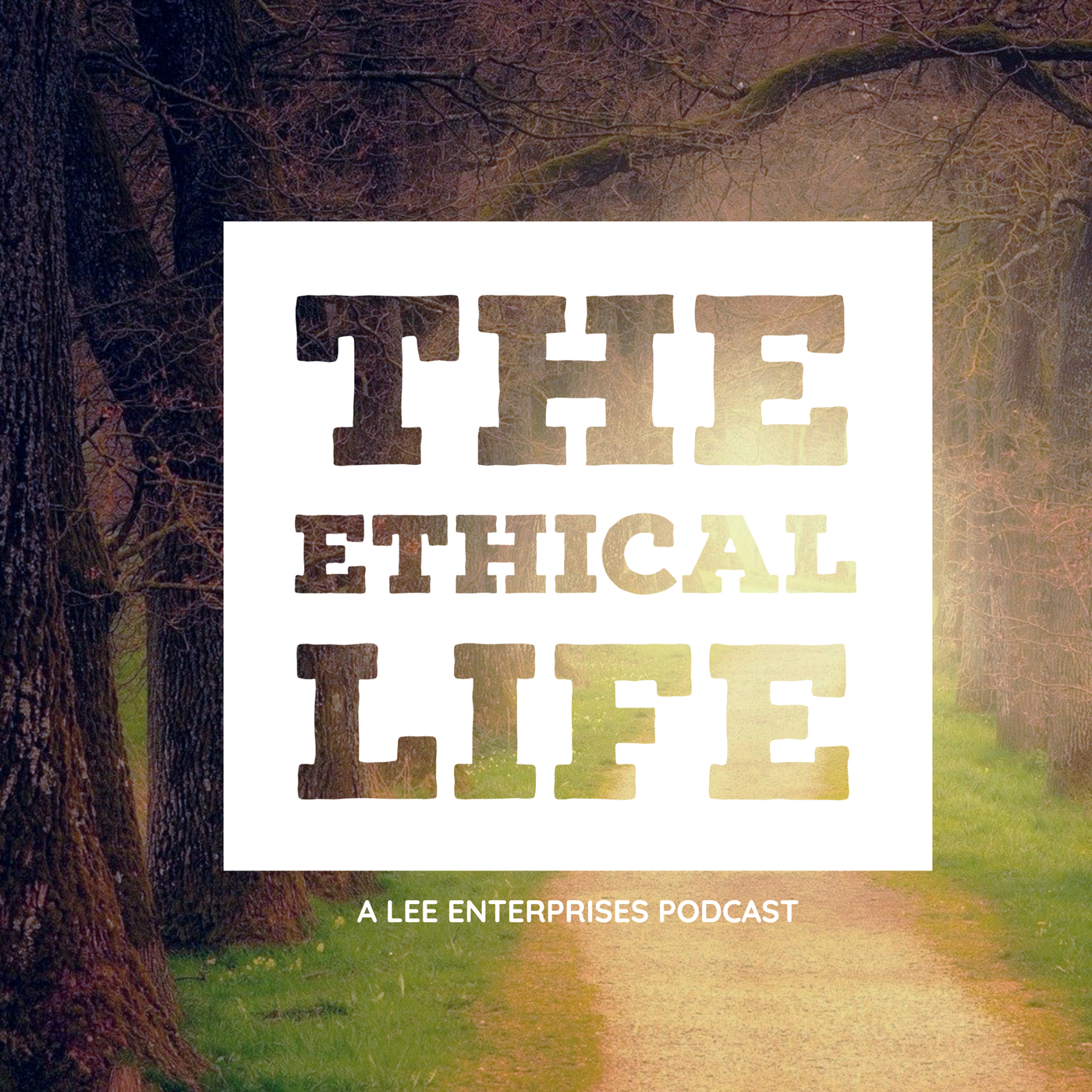
Episode 227: As the calendar turns and uncertainty once again shapes politics, technology and everyday life, The Ethical Life returns to a familiar exercise: looking ahead while holding the past accountable.
Hosts Richard Kyte and Scott Rada are joined by Scott Milfred, Lee Enterprises’ national opinion editor, for a wide-ranging conversation about what the coming year may hold — and what last year’s confident calls reveal about the limits, temptations and value of prediction.
The episode spans politics, pro sports, technology and health care, with the hosts weighing which forces are likely to drive headlines and which may quietly fade. Along the way, they examine how incentives, public trust and unintended consequences shape outcomes long after predictions are made.
Before closing, the hosts revisit the six forecasts offered one year ago, assessing what proved prescient and what missed the mark.
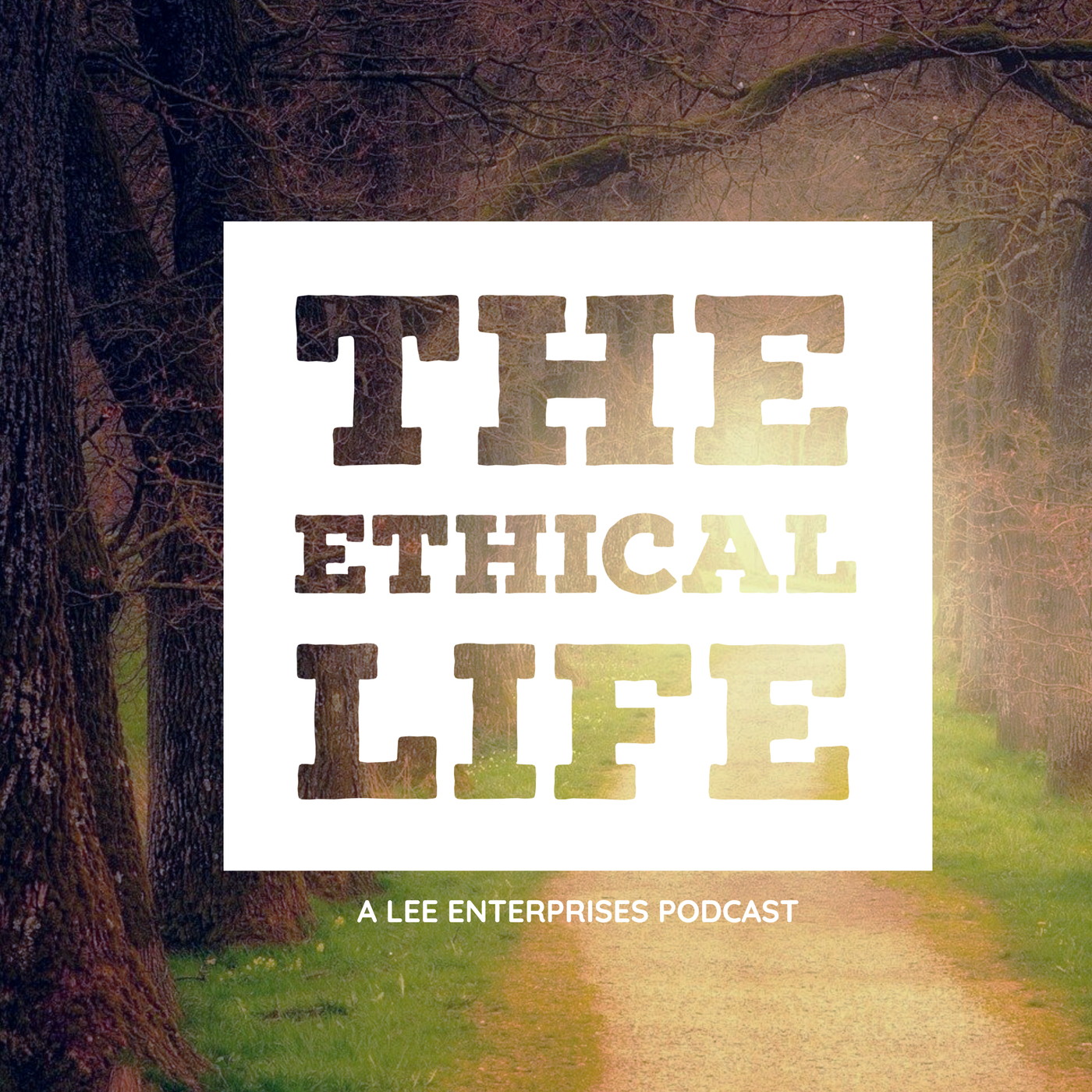
Episode 226: As Christmas approaches, memories have a way of resurfacing — sometimes warmly, sometimes painfully, often with more force than expected. In a holiday-themed episode, hosts Richard Kyte and Scott Rada take a close look at why this happens, and what it means for how people live, relate to and care for one another.
The conversation centers on nostalgia — not as a vague sentiment, but as a powerful psychological and ethical force that shapes expectations, family dynamics and personal well-being during the holidays. Drawing on recent psychology research, personal stories and everyday experiences familiar to many listeners, the hosts examine why memories tied to Christmas feel especially vivid and emotionally charged.
The hosts explore how holiday traditions — from meals and decorations to music and family rituals — can ground people in connection and continuity. Remembering loved ones who are gone, revisiting childhood experiences or repeating familiar customs can offer comfort and a sense of belonging. At its best, nostalgia helps people understand their own story and motivates them to create meaningful moments for others in the present.
But the episode also confronts the darker side of holiday remembering. Idealized memories can distort reality, create unrealistic expectations and quietly turn celebration into pressure. When people chase a version of the past that never fully existed, disappointment often follows — especially when family relationships are strained, gatherings fall short of expectations, or loved ones are absent. For some, the holidays heighten loneliness rather than ease it.
Through stories ranging from cherished family recipes to awkward childhood gifts and unexpected acts of generosity, the hosts explore how memory is inherently selective. They consider whether it is acceptable — or even wise — to smooth rough edges when retelling family stories, and how storytelling itself shapes moral identity over time.
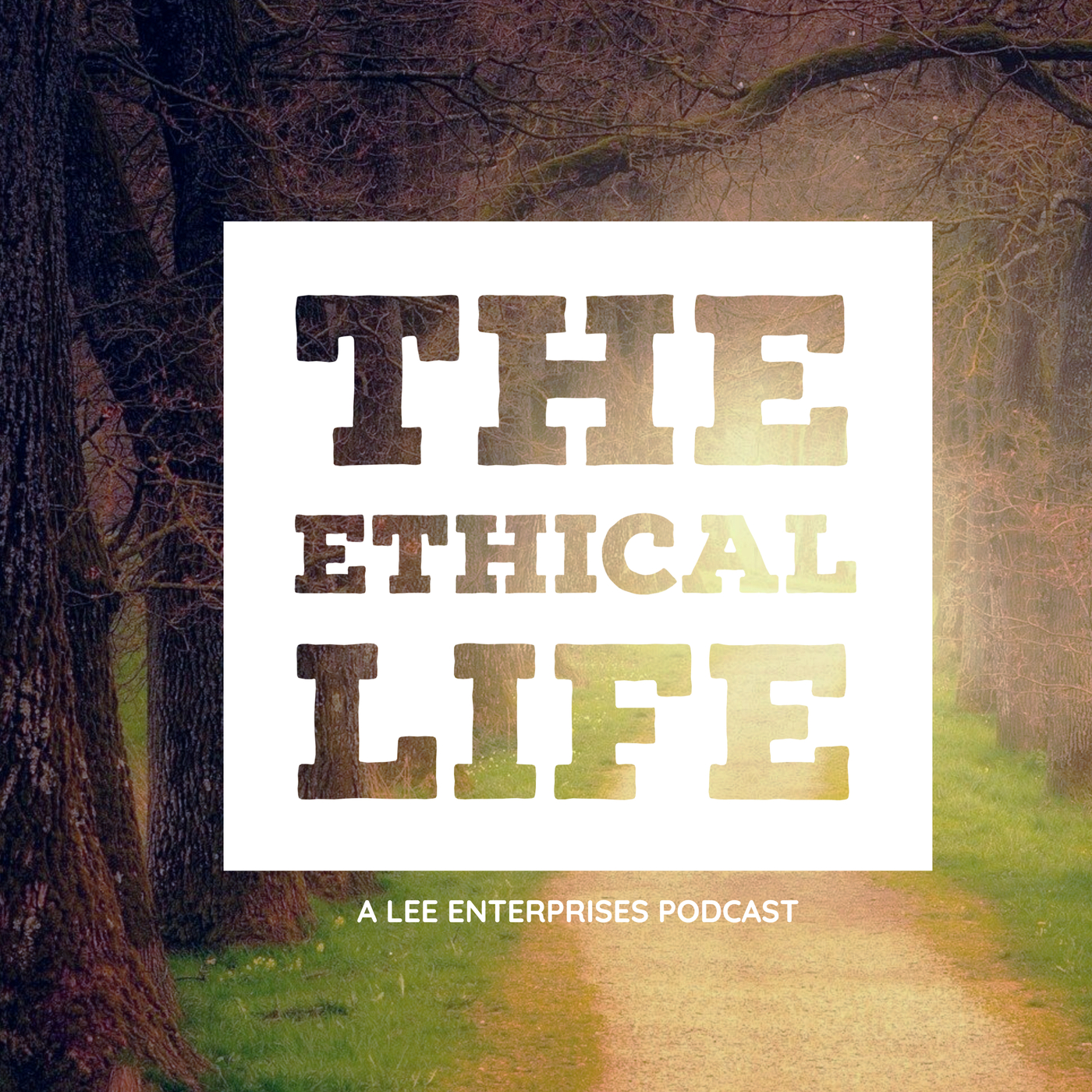
Episode 225: As digital noise continues to shape modern life, the latest episode of “The Ethical Life” turns inward, offering listeners a wide-angle look at how ancient ideas can help people navigate an era marked by distraction, isolation and growing cultural tension.
Hosts Scott Rada and Richard Kyte revisit the seven-part series they released this fall based on Kyte’s public lecture program, “The Search for Meaning.” The series explored a set of foundational concepts — truth, goodness, love, beauty, the soul, justice and nature — each presented through the lens of a major historical thinker.
This week’s conversation steps back to examine the project as a whole. Kyte explains that he launched the lecture series after noticing both a renewed hunger for purpose and a cultural landscape that makes deeper reflection difficult. With entertainment, social media, and algorithmic feeds competing for every spare moment, he says, people feel increasingly unmoored from the community, rituals, and shared practices that once helped anchor their daily lives.
Rada and Kyte trace how that tension surfaced throughout the series. Topics such as goodness and the soul proved more challenging to condense, Kyte says, because they resist simple explanation. Others — including justice and nature — were difficult for the opposite reason: he had too much to say. Yet as the series progressed, he found that the ideas were more interconnected than he expected, each building on the last as the philosophical timeline moved from Socrates to Aldo Leopold.
The episode also looks ahead. Kyte says he has begun the early stages of transforming the series into a book, drawing on months of research and the community discussions that followed each lecture. The core ideas will remain, he says, but he hopes to frame them more explicitly around the pressures of modern life and the need for intentional habits of attention.
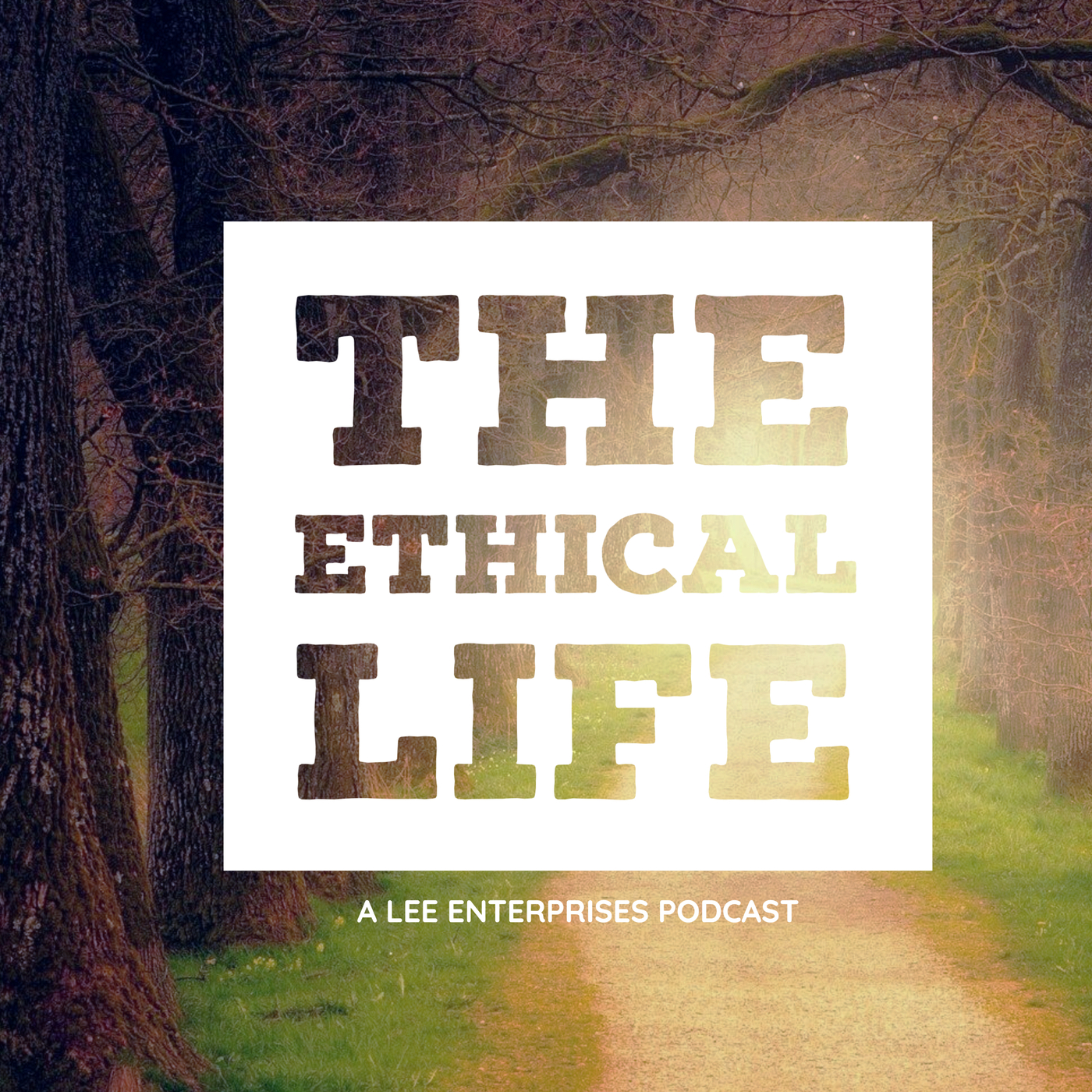
Episode 224: A recent article by Jason Feifer serves as the starting point for this episode of “The Ethical Life,” where hosts Richard Kyte and Scott Rada examine the quiet struggle many people experience when reaching out for support.
Feifer’s piece argues that the fears holding us back — such as imposing on others, appearing incompetent, or being judged — are often misplaced. In reality, offering assistance tends to strengthen relationships rather than strain them. Rada and Kyte use that insight to explore why hesitation remains so common and what it reveals about modern life.
Rada opens the conversation with a story from Thanksgiving, when he asked a relative to pass the butter while preparing mashed potatoes. The request was trivial, yet it offered a striking example of Feifer’s point: rather than being put out, the relative felt useful and included. That small moment reflects broader research cited in the episode, including a study featured in The New York Times, which shows that people who help typically feel more satisfied and appreciated than those who request support.
Kyte connects the issue to cultural forces, noting that American society often elevates self-reliance as a virtue. Many people, he says, absorb the message that competence means handling everything alone, even when collaboration would be healthier. He recalls his experience trying to stabilize a struggling nonprofit as its interim leader. Although he initially tried to shoulder too much himself, he soon realized that without asking others to join in, the organization couldn’t build the collective capacity it needed.
The episode also highlights how interdependency forms through everyday social rituals, including children’s birthday parties. Rada explains that critics once argued such celebrations encouraged selfishness. Instead, as Feifer notes — and the hosts echo — these gatherings helped establish mutual obligations among young peers, teaching them both to receive recognition and to reciprocate by showing up for others.
Listeners also hear practical guidance on making responsible and thoughtful requests. The hosts discuss the SMART framework — specific, meaningful, action-oriented, realistic and time-bound — which helps ensure outreach feels respectful rather than burdensome. Kyte emphasizes that clarity is especially important for volunteers, who want to know not just that they’re needed, but how they can be genuinely useful.